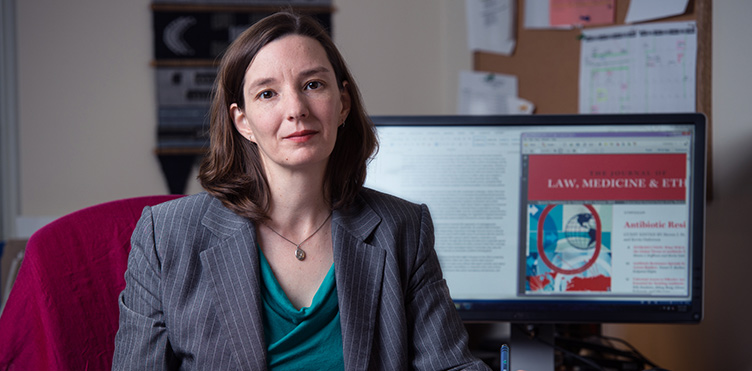
A global health expert from UNB is helping to lay the foundation of a Canadian research hub to help co-ordinate a global response to antimicrobial resistance.
Dr. Suzanne Hindmarch, an assistant professor of political science studying international relations and global health, and Dr. Malcolm King, scientific director of the Saskatchewan Centre for Patient-Oriented Research at the University of Saskatchewan, form one of three teams sharing $300,000 in funding from the Government of Canada for the critical research.
Since the spring, Dr. Hindmarch has co-led a team of mostly Indigenous researchers who will consult with Indigenous organizations in Canada to learn about their perspectives on antimicrobial resistance, the health challenges it presents in their communities and how they have been, and would like to be, involved in national and global response networks.
More commonly known as drug-resistant infections or bacteria, antimicrobial resistance happens when microbes such as bacteria, viruses or parasites change so that the drugs used to treat them are no longer effective.
This emerging global health crisis has the potential to undermine health care providers’ ability to control and prevent the spread of infections and to perform medical procedures such as surgeries and chemotherapy.
Dr. Hindmarch was drawn to the study of antimicrobial resistance by its highly complex, politically challenging nature. It was during her research of the global response that she was struck by the relative absence of Indigenous perspectives and organizations.
“It’s really about beginning a conversation,” Dr. Hindmarch said. “Because the antimicrobial resistance response is still in its infancy, there’s a tremendous opportunity to work in partnership to build Indigenous leadership into this response from the outset – and to ensure that the response is culturally safe, respectful of Indigenous peoples and well-situated in the larger context of Indigenous health, wellness and sovereignty.
The results of this research will inform a globally-connected Canadian response to antimicrobial resistance, both in terms of prevention and in terms of addressing drug-resistant strains when they appear.
The two other research teams which received funding for the project are from the Université de Sherbrooke and University of Ottawa.